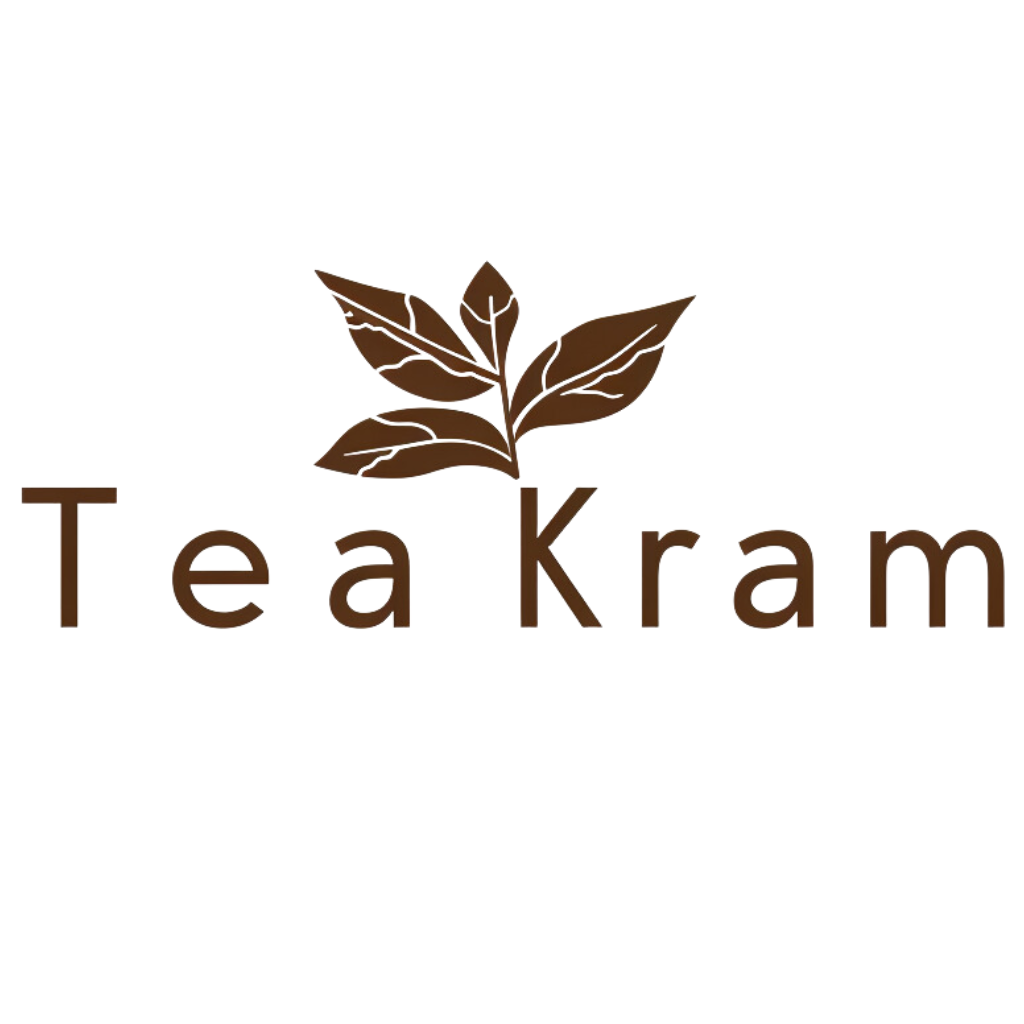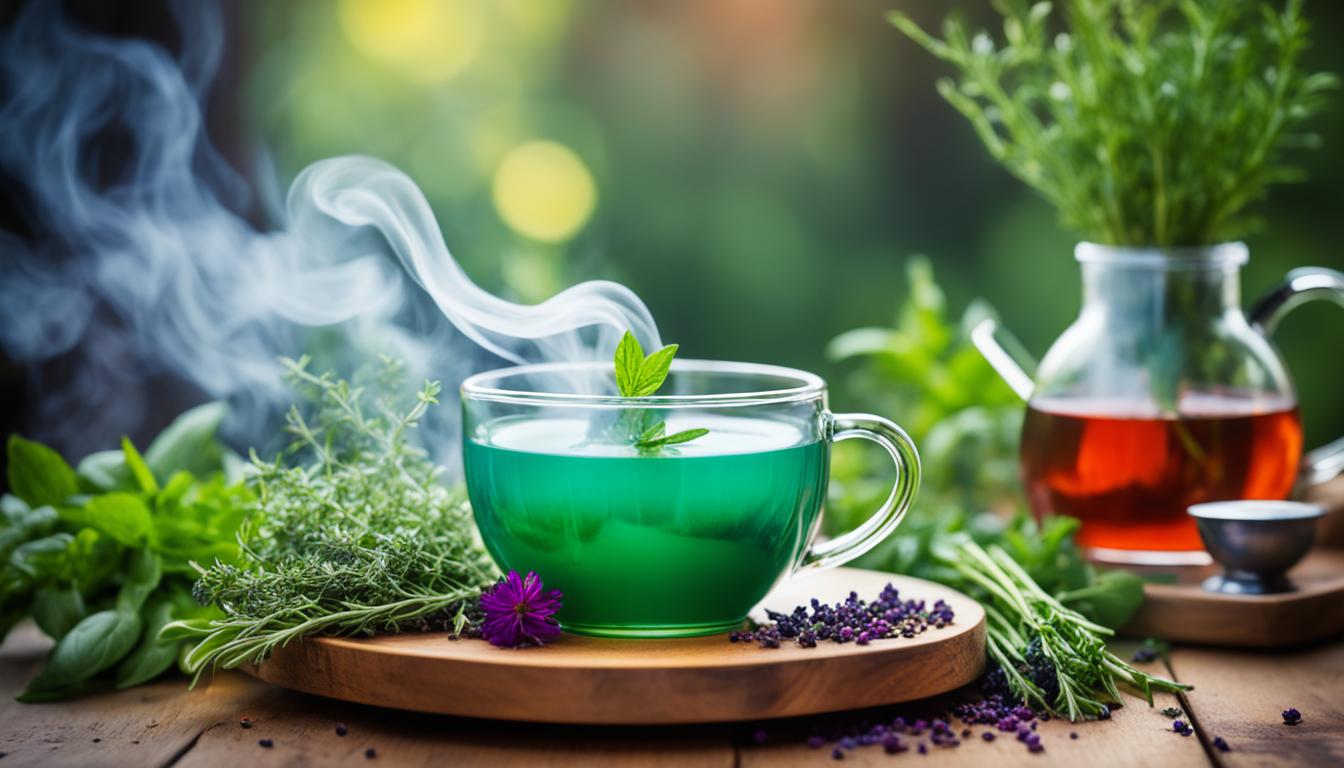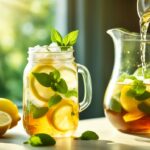Start your journey to improve your tea-making rituals. Learning to brew herbal tea is more than just soaking leaves. It’s about knowing the little details that make the tea taste better. This includes picking the best teas and adjusting how long and hot you brew them. Each step brings out new flavors and smells. Dive into this ancient practice and get ready to make the most flavorful teas yourself.
Key Takeaways
- Understand the importance of precise timing and correct water temperature to enhance herbal tea taste.
- Explore the variety of whole or large leaf herbs compared to conventional tea bags for maximum flavor.
- Experiment with steeping durations to tailor the brewing process to your personal taste preference.
- Learn the specific steeping requirements for different types of tea, such as white, green, oolong, black, and herbal.
- Embrace tea brewing as a mindful practice for a deeper connection with the flavors and aromas of each cup.
Understanding the Basics of Herbal Tea Brewing
Starting your herbal tea journey means knowing the basics well. Choosing top-quality ingredients and understanding water’s role are key. These elements help extract the most flavor from your tea. Let’s explore what makes the best brewing methods and learn to enjoy every sip of your tea.
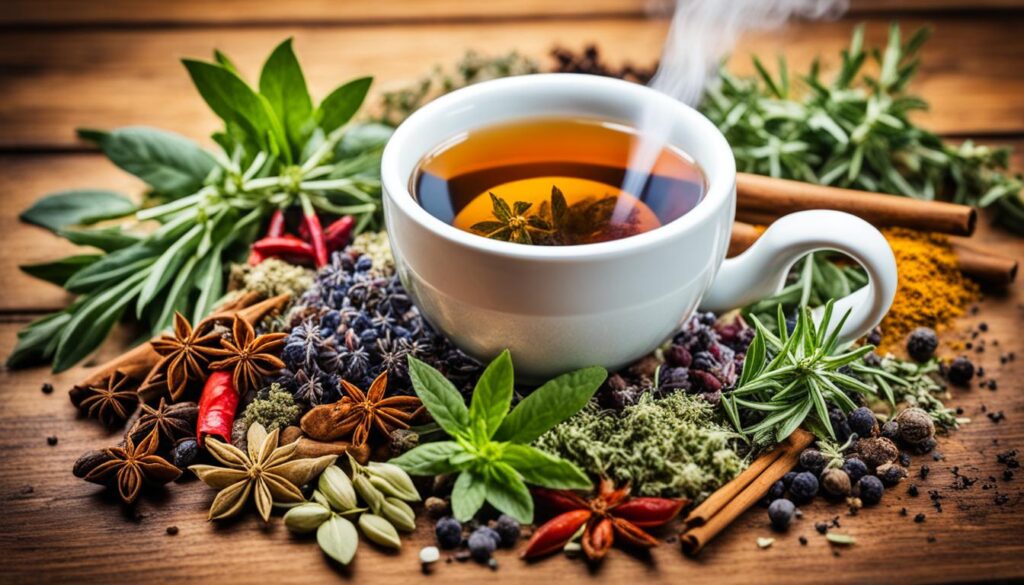
The Essentials of Proper Steeping Techniques
Getting steeping right is critical for extracting full flavor. Tea experts believe letting tea leaves expand in hot water is vital. This step brings out the tea’s true flavor, enhancing its aromatic oils and tastes.
The Importance of Water Quality in Tea Brewing
Water plays a big role in brewing tea. Fresh, oxygenated water improves your tea’s flavor. In places with hard or chlorinated water, using a filter helps. Always use fresh, cold water and avoid reboiling for the best flavor.
Choosing the Right Tea: Loose Leaf vs. Sachets
For quality and flavor, loose leaf teas are often preferred. Yet, sachets can be a convenient choice without sacrificing much taste. Here’s a comparison to help you pick the best for your brewing habits.
| Characteristic | Loose Leaf Tea | Tea Sachets |
|---|---|---|
| Flavor Intensity | Rich and full-bodied | Comparable to loose leaf |
| Quality of Leaves | Whole or large fragments | Often whole leaf quality |
| Freedom for Leaves to Expand | Ample | Generous, but size-limited |
| Convenience | Requires additional tools | Optimal for quick brewing |
| Ease of Cleanup | Some effort needed | Minimal effort |
No matter which type you choose, both methods can enhance your tea-drinking ritual. Herbal teas need attention to steeping time, about 5 minutes at boiling point. With time, you’ll find the perfect steeping time that fits your taste.
Finding the Perfect Balance: Steep Time and Water Temperature
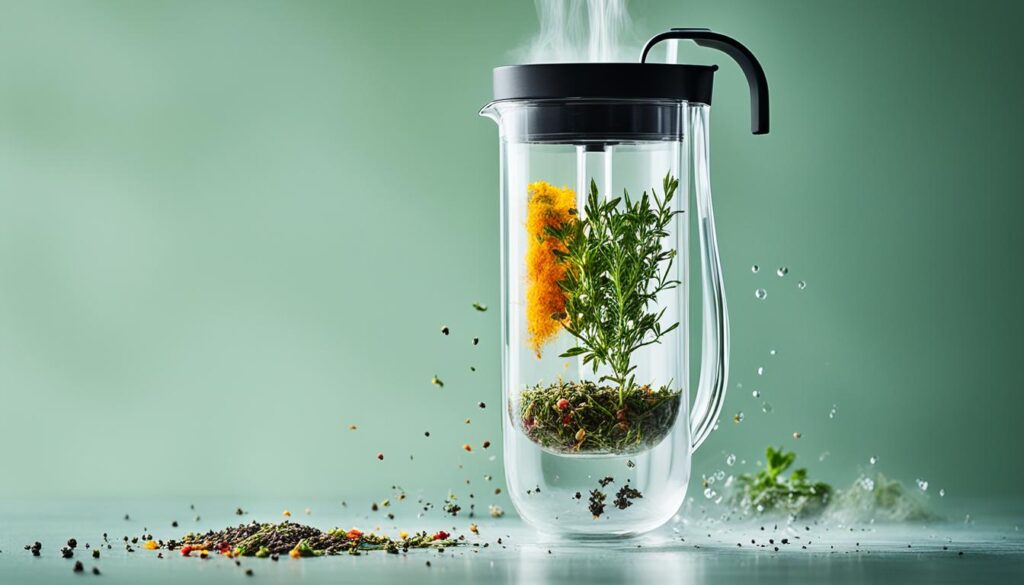
If you love herbal tea, getting the steep time and water temperature right is important. Each type of herb or tea has its own perfect conditions that make the best flavor. Here are some great tips to help you brew the most flavorful herbal tea.
Herbal Infusions for Flavorful Tea: Every herbal tea has its special requirements. The steeping time is important for the best flavor and aroma. If you steep it too long, the tea could become bitter. If too short, it might be weak. Using hot water of 212°F is usually best to bring out the flavors of the herbs.
Remember, the essence of herbal teas is best extracted with careful attention to time and temperature. Experimenting can help you find what works for you.
Below is a quick guide to help you find the ideal brewing conditions for various herbal teas:
| Tea Type | Ideal Water Temperature | Steep Time |
|---|---|---|
| White Herbal Teas | 160-185°F | 4-5 minutes |
| Green Herbal Teas | 175-185°F | 2-3 minutes |
| Oolong Herbal Infusions | 185-205°F | 3-5 minutes |
| Black Herbal Teas | 200-212°F | 4-5 minutes |
| Pure Herbal Infusions | 212°F (boiling) | 5-7 minutes |
To brew the best herbal tea, start with fresh, cold water for more oxygen, which helps flavors release better. You can adjust steeping times to suit your taste. This way, you create your own perfect cup of herbal tea.
Advanced Techniques for Herbal Infusions for Flavorful Tea
Making herbal tea with rich flavor involves more than just knowing the basics. It means diving into special brewing tricks. This journey excites your senses and lifts your spirit.
Choosing the right ingredients is key to making a memorable cup of tea. By trying different blends and methods, you find a mix that’s lively and personal.
Experimenting with Aromatics and Blending
Adding aromatic flowers like osmanthus can change your tea in amazing ways. They bring a soft scent and add flavor layers, making your tea standout. Blending teas is an art – it’s about finding the perfect mix that sings in harmony.
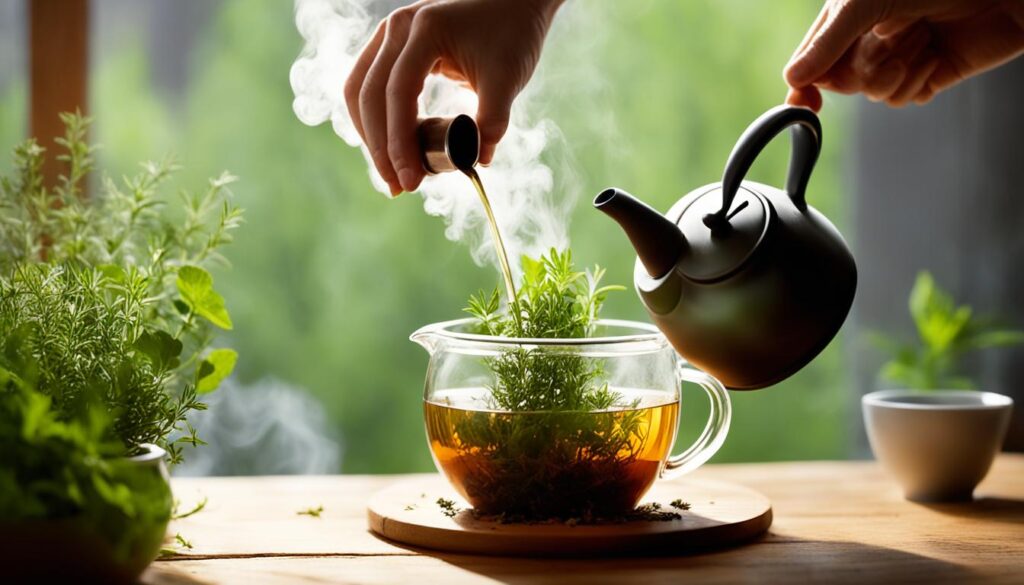
Herbal Tea Flavor Enhancement with Proper Utensils
Using the right tools is crucial for the best tea. A basket strainer helps by improving water flow and stopping tea from steeping too long. Warm cups keep your tea’s true flavor alive longer. Whether you choose loose leaves or sachets, the tea’s quality is what really matters.
Every step, from picking your tea blend to using the right tools, is part of making great herbal tea. It shows your skill and love for tea brewing.
Herbal Tea Brewing for Maximum Flavor: Elevating Your Herbal Tea Experience
Starting to brew herbal tea opens a world of flavors that match your taste. The secret to great tea is customizing how you make it. This means extracting maximum flavor from herbal tea with your own special touch.
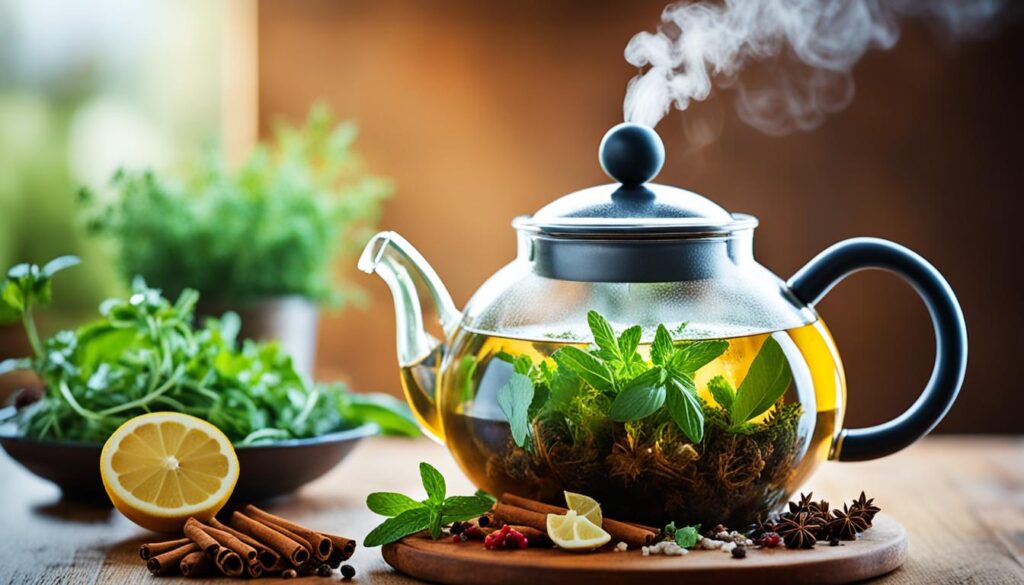
Personalizing Your Brewing Process for Greater Enjoyment
To make a unique cup, you might need to experiment. It’s about finding the right brew strength and herbal mix for you. By adjusting how long you steep your tea, you can ensure it’s just to your liking.
The Impact of Water Temperature Precision
Many forget how key water temperature is in making tea. Boiling water is essential to bring out your tea’s flavor, especially for strong herbs. Using a strainer stops the steeping at the perfect moment, preventing bitterness.
| Herbal Tea Component | Personalized Variable | Standard Recommendation |
|---|---|---|
| Brewing Time | Adjust to taste preference | 5-10 minutes |
| Water Temperature | Full boil (adjust for altitude) | 212°F (100°C) |
| Herb Quantity | Less for lighter flavor, more for stronger | 1 rounded teaspoon/cup |
| Steeping Vessel | Choose based on preferred brewing method | Teapot with infuser or strainer |
Mastering these elements can upgrade your tea brewing. It’s all about mixing old traditions with your own style. The best part of making tea is the joy of making it and tasting that first, flavorful sip.
Mindful Brewing: The Art of Presence in Tea Preparation
Herbal tea brewing is more than adding to our daily routines. It’s a practice in being fully present and mindful. Brewing herbal teas is a break from life’s fast pace, boosting our wellbeing. It’s not only about making tea taste better but also about slowing down to enjoy the moment.
Brewing herbal tea can become a meditative art when we use all our senses. Notice the tea leaves’ bright colors and listen to the water boil. Feel the heat from the pot and smell the fragrances that are released. This full sensory engagement is key to finding serenity.
Mindful brewing reminds us to stay present and connect with the moment. By adjusting water temperature and steeping time, we form a deeper bond with nature. The steps to improve tea flavor also bring us peace—a tranquil journey with each sip.
Herbal tea brewing can transform a daily habit into a meaningful ceremony. It allows us to slow down and appreciate life’s simple joys. Mindfully preparing tea leads to clarity and peace, inspiring a more thoughtful lifestyle.
- Engage with the sound of boiling water for a grounding experience.
- Explore the tactile pleasure of holding a warm mug to soothe the senses.
- Inhale deeply to take in the full spectrum of herbal tea aromas.
- Allow the taste of the brew to linger, appreciating each flavor note.
Next time you brew herbal tea, think about how being mindful affects its taste and your enjoyment. Embrace the process of making tea with intention. It’s as rewarding as enjoying the perfect cup of herbal tea.
Tips for Brewing Herbal Tea: Achieving a Consistently Delightful Cup
To make the perfect herbal tea, knowing the best techniques for brewing herbal tea is key. This includes how to store herbs and measure them right for the best taste.
Storage and Shelf Life: How to Keep Your Herbs Fresher, Longer
Herbal tea flavor enhancement starts with keeping herbs fresh. Store them in a cool, dark spot. Humidity, heat, and light can harm their quality.
Use an airtight container away from strong smells. This helps maintain their delicate flavors for a great brew.
Proper Measurements for a Balanced Brew
Finding the right herb-to-water ratio is important in brewing the best herbal tea. Too much herb or too little can spoil the taste. A rounded teaspoon per cup of water is a good rule.
Adjust based on what you like to make it perfect. Remove the herbs after the right brewing time to avoid bitterness. This makes every cup enjoyable.
Following these tips makes creating the perfect herbal tea easy. Good storage and correct measurements lead to a delightful cup, offering great taste and relaxation.
Conclusion
Brewing herbal tea is more than a skill; it’s an exciting adventure. It requires commitment to improve our sense of taste and smell. The journey involves learning how to steep correctly, use pure water, and apply the right heat. These aren’t just steps, they’re key chapters in a story of exploration. We learn to appreciate the small details, turning a simple tea time into a unique experience.
Finding true happiness in tea brewing comes from making it your own. It’s about adding a personal touch to enhance the flavor. Being mindful plays a big role—you notice the tea’s color, smell, and warmth. The practical parts, like storing tea well and measuring it right, are important too. They ensure that every cup reflects your growing skill in this art.
The goal in mastering herbal tea is not just about the perfect cup. It’s about enjoying a quiet moment away from our busy lives. This practice benefits our mind and body, offering peace with each sip. The way we prepare our tea—by steeping it correctly, managing the temperature, and keeping it fresh—makes life a bit sweeter. Each sip helps us appreciate the beauty in the world around us.
